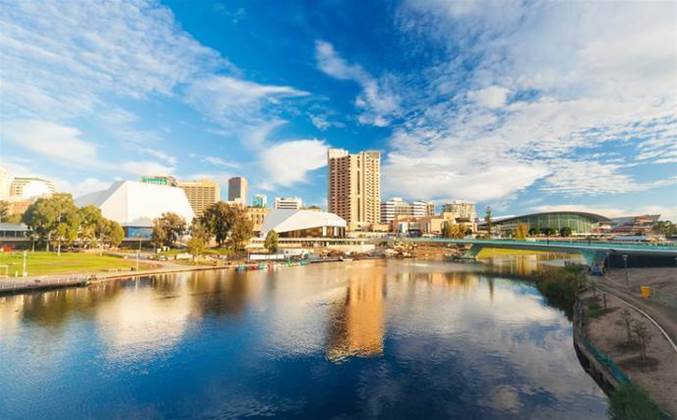The City of Adelaide is resetting its smart city strategy and roadmap, bringing together programs of work from across council as it looks for ways to “reactivate” the city post-COVID-19.

Innovation projects manager Kim Hunt told last week’s Smart Cities virtual conference that the council had transferred responsibility for smart cities from its Information Management team to a “new team called Innovate Adelaide”.
Innovate Adelaide is a team of five people with a “fairly broad and sometimes loose remit that covers data, innovation, entrepreneurship” and now also the smart cities program.
It is now taking the opportunity to formalise smart city works under a single umbrella.
“For the last couple of years our smart city actions have been driven largely just out of a few deliverables in our broader council strategic plan, and we've been operating without a specific smart city strategy,” Hunt said.
“We're at the start of our journey of resetting our smart city strategy and roadmap, but we are fortunate in that the organisation has just been through the exercise of developing our whole new council four year strategic plan so there has been a huge amount of engagement done throughout that process ... so we will be tapping into that a lot as we develop a strategy.”
Hunt said that the onset of COVID-related lockdowns had freed up time internally to work on the smart city renewal strategy.
“We have taken the opportunity to kick that activity off, and I think it will go a long way for us towards joining together all of these disparate dots and activities that are already happening around the organisation - really pulling them all together and making sure that we have the best chance to identify synergies and extract the best value from the resources that we have got to put towards smart city,” she said.
“As anyone that's been through the exercise of developing a smart city strategy and roadmap, you will know that it's a big piece of work.
“We will need to consult, and we do expect it to take us a good few solid months to work through that. But we’re very happy to have got the ball rolling there.”
Ten Gigabit network evolves
Hunt is no stranger to the work, also being the long-term project manager for Ten Gigabit Adelaide, a 10Gbps fibre optic network built by TPG that will ultimately connect up to 1000 business sites across the city.
Ten Gigabit Adelaide is “within coo-ee” of phase one completion, Hunt said.
“Within six months, we will have 1000 commercial buildings connected to the network,” she said.
“We're already at 700 buildings live, and we've got well over 200 businesses - heading towards 250 businesses - that are on long-term three to four year contracts attaining service, which is fantastic.
“That will draw a line in the sand for phase one of the Ten Gigabit Adelaide project.”
She said a second phase would then be pursued that seeks to bundle additional services with the base connectivity agreements.
“Phase two, looking forward, is about extracting a return on investment from that project,” Hunt said.
“It's about the provision of second-tier services … like cloud and software-as-a-service products available to users of that network.
“Phase two is also about us extracting and leveraging the fibre for our own use in council.”
The network will also be used to backhaul a new free wifi network that is being built with federal funding after Adelaide secured a so-called “city deal” last year.
“The funding that the council received as part of that city deal is intended to be used on smart city projects and the Adelaide free wifi service is one of those,” Hunt said.
“We're almost at the stage of having finished our detailed business case and benefits model for that project, as well as a technical specification.
“Our plan is to backhaul the wifi service off of our Ten Gigabit Adelaide network. That means that not only will we be able to provide a really super fast and reliable, easy to use free wifi service, but we can also expand the footprint so we pretty much will have ubiquitous access throughout our CBD and North Adelaide area.”
Council will use the wifi network for some sensing-related projects as well, including “the installation of Bluetooth people movement sensors”.
Such sensors have been used by other councils as they seek to understand how well citizens are complying with lockdown requirements.
Data rises
The City’s use case for sensor-based data collection also highlights more broadly what it anticipates will be a higher importance generally being placed on data analytics in the post-COVID era.
“COVID really has sharpened our focus on the need to really get our house in order in the data space,” Hunt said.
“We already knew that, but I think what it's done is shown us in very real terms that data is a critical resource, and certainly one that will help us manage our city better in future if a crisis should hit us again, but also [allow us to] enhance that everyday citizen experience when using our city.
“All roads for us at the moment lead back to data.
“To that end, we've got a lot of work to do in the data governance and data policy space. And in the new financial year, we are also planning to start exploring the implementation of a data management platform.”


_(20).jpg&h=140&w=231&c=1&s=0)

.png&h=140&w=231&c=1&s=0)






 iTnews Benchmark Awards 2026
iTnews Benchmark Awards 2026
 iTnews Executive Retreat - Security Leaders Edition
iTnews Executive Retreat - Security Leaders Edition
 iTnews Cloud Covered Breakfast Summit
iTnews Cloud Covered Breakfast Summit
 The 2026 iAwards
The 2026 iAwards










_(1).jpg&h=140&w=231&c=1&s=0)



